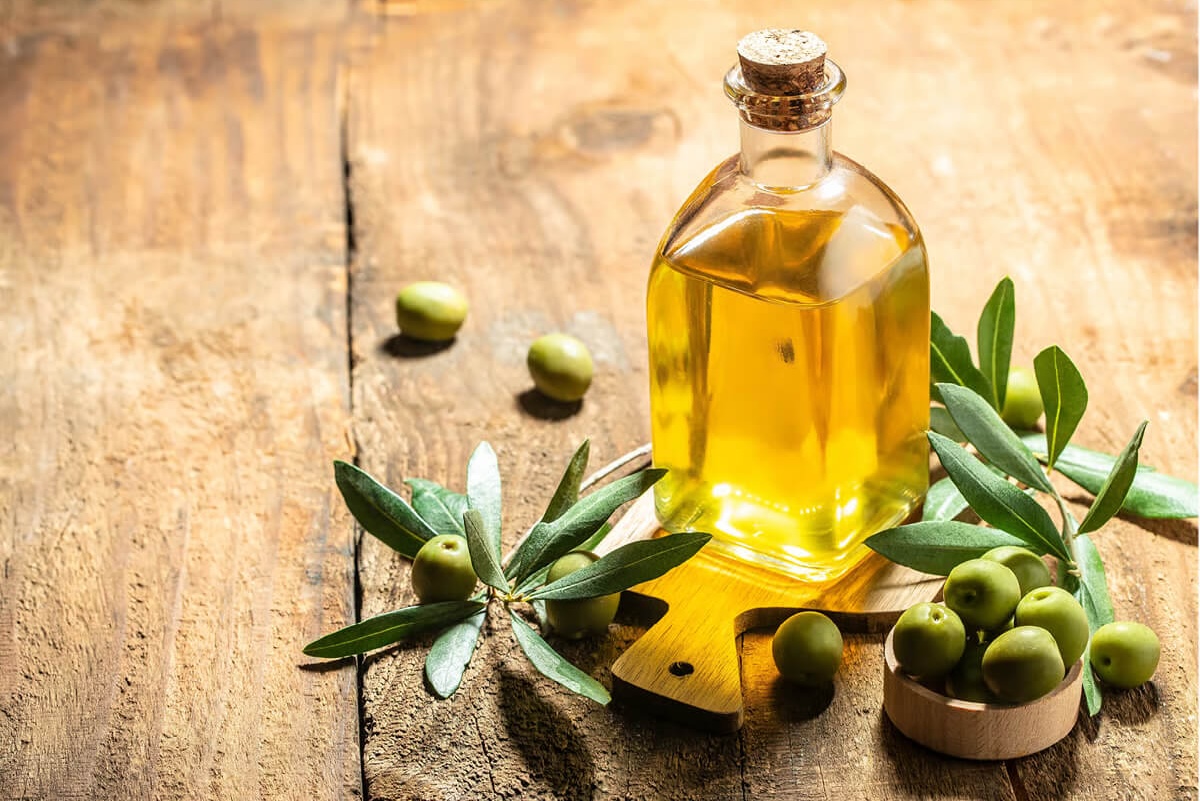"Is There Really a Difference Between Extra Virgin and Regular Olive Oil?"
Is there really a difference between extra virgin and regular olive oil, or is it just another wellness world overhype? Let’s break it down—because your drizzle deserves the truth.

This question came from someone in the 8-Week Wellness Experiment recently. In a perfect world, we’d be discussing this over oat milk lattes at that cute corner café. But hey—this virtual coffee date in your inbox works too.
The short answer? Yes. There is a difference–big time. And it isn’t just wellness industry hype (unlike those $80 collagen powders that promise to “reverse the aging process”). There’s actual science behind it.
Time to catch up: ☕
Extra Virgin Versus Regular Olive Oil
The biggest differences between Extra Virgin Olive Oil (EVOO) and Regular Olive Oil lie in how they’re produced, their nutritional content, and flavor profile.
Let’s start with how each is made: Imagine two olives side by side. Olive 1 is at its prime ripeness. Olive 2 is under-ripe and bruised.
Olive 1 becomes EVOO. It’s brought to a mill where it’s cold-pressed, a process where the olive is crushed to extract the oil without the use of heat or chemicals.
Olive 2 becomes regular olive oil. (It wouldn’t even qualify for EVOO because producers only use the healthiest olives!) While this olive also gets a cold-press, it then undergoes refinement—a process that uses heat and chemical solvents to remove any impurities and create a more shelf-stable product.
Another way to picture it is the difference between fresh-squeezed orange juice and store-bought concentrate. Same fruit, very different final product.
Let’s Talk Nutritional Profiles
Naturally, when you subject any food to intense processing, you strip away many of its beneficial properties. Olives are no exception!
While regular olive oil will retain olive's heart-healthy monounsaturated fats, the heat and chemical-heavy refinement process nixes the vitamins (particularly vitamin E), healthy fats, and polyphenols.
That last one is important. Polyphenols are powerful antioxidants that have been shown in several studies to reduce inflammation and promote heart health (Behl et al., 2020).
But Extra Virgin Olive Oil? It keeps all that good stuff—and then some. A meta-analysis in Nutrients (Flynn et al., 2023) reviewed 34 clinical trials and found that regular EVOO consumption was associated with:
- Prevention of cognitive decline
- Decreased risk of Type 2 Diabetes
- Lower likelihood of obesity and weight gain over time
- Reduced risk of breast and colorectal cancers
Even better? EVOO is a cornerstone in the Mediterranean diet, which is well-documented for its longevity effects. A study in Nutrition, Obesity, and Exercise found that women who adhered to the Mediterranean diet had a 23% reduced risk of all-cause mortality (Ahmad et al., 2024).
Of course, many factors contributed to these results (EVOO alone isn’t some longevity potion, though, I wish). However, it makes for a compelling case to add it to your kitchen pantry.
What About The Taste?
It’s not just health benefits you’d be missing out on: Flavor is part of it, too.
EVOO has a noticeably fresh, grassy aroma and distinct taste profile. I’d describe it as a strong, peppery flavor, and I love to drizzle it on salads, veggies, and toast.
Meanwhile, regular olive oil has a lighter, neutral taste. It doesn’t really have a strong flavor. However, that does mean it’s better suited for higher-temperature cooking, frying, or baking.
Here’s My Advice
My advice as a doctor and nutritionist? Use EVOO whenever you can. It seriously goes on almost anything—pizza, morning eggs, grilled fish, and vanilla ice cream (just trust me on this).
Save the regular stuff for high-heat stir-frying if you must. Just don’t count on it for bringing that nutritional punch!


